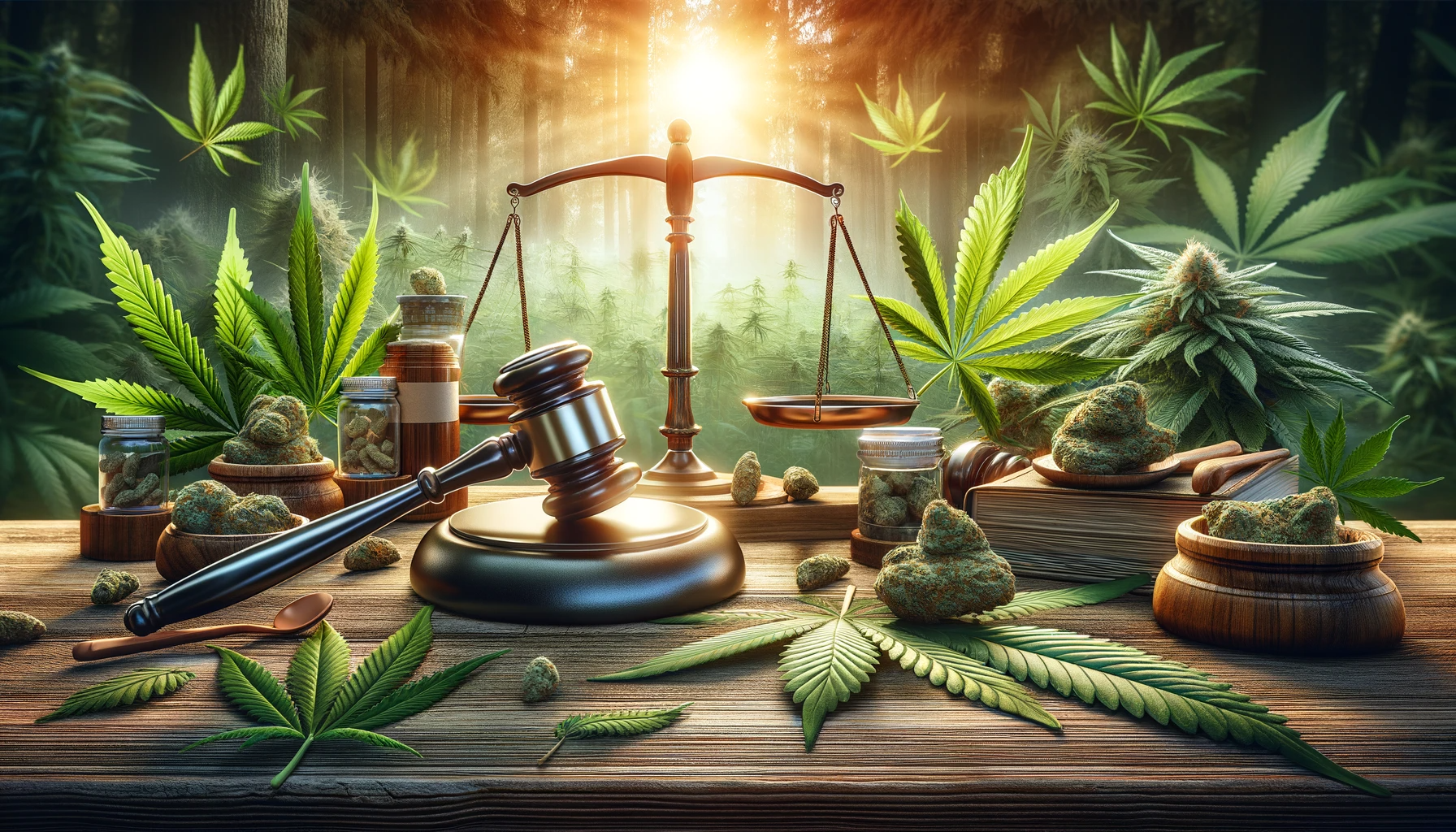Marijuana legalization has become a hot topic among politicians, users, and those who believe in the drug’s potential for health effects. While some states have legalized recreational cannabis, others have only legalized medical marijuana. Some other states have marijuana laws that have completely banned the plant altogether.
The Controlled Substances Act of 1970 made marijuana a Schedule One substance. So, it is important to note that at the time of the publication of this article, the use of cannabis is still federally illegal.
The substance in marijuana that gets users high, tetrahydrocannabinol, is commonly known as THC. This psychoactive substance is the primary cannabinoid in the cannabis plant. Here, we are going to break down the legal status of marijuana use per state, including the following:
- Home Cultivation
- Recreational Purposes
- Accepted Medical Use
- States That Have Decriminalized Cannabis
- Legal Cannabis Trade
Understanding Marijuana Legalization
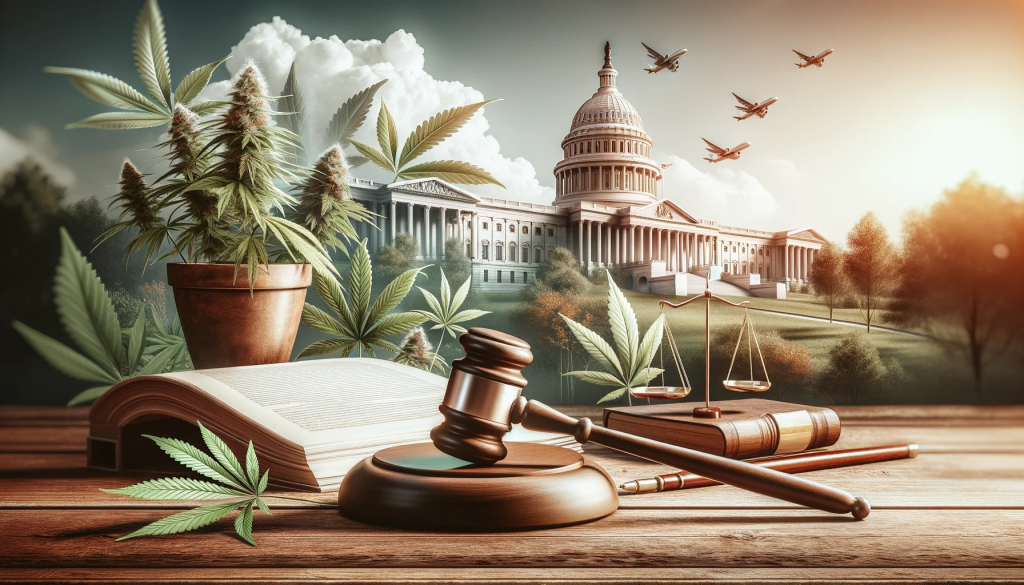
As it stands, the legal status of THC in the US varies by state and federal laws, with hemp being treated differently than marijuana.
Hemp vs. marijuana
Cannabis is a plant that can be broken down into two distinct varieties: hemp and marijuana. Generally speaking, the legal classifications of these plants are based on their THC content.
Hemp-derived products generally contain 0.3% or less THC by dry weight; anything with higher levels than this falls under the classification of marijuana, as per federal law. The 2018 Farm Bill legalized the regulated production of hemp for commercial use in agriculture and other industries such as bioplastics, medicine manufacturing, foodstuffs, textiles and even construction materials.
In contrast to hemp’s legal status, marijuana remains illegal federally due to its higher THC levels, which give it psychoactive properties. However, some states have developed legislation to allow for medical or recreational use depending on local regulations in those particular states.
Canna River
<p>Canna River offers a range of hemp-infused gummies to enhance your wellness journey. The products are sourced from plant-based ingredients and provide targeted aid for various wellness needs.</p>
Learn More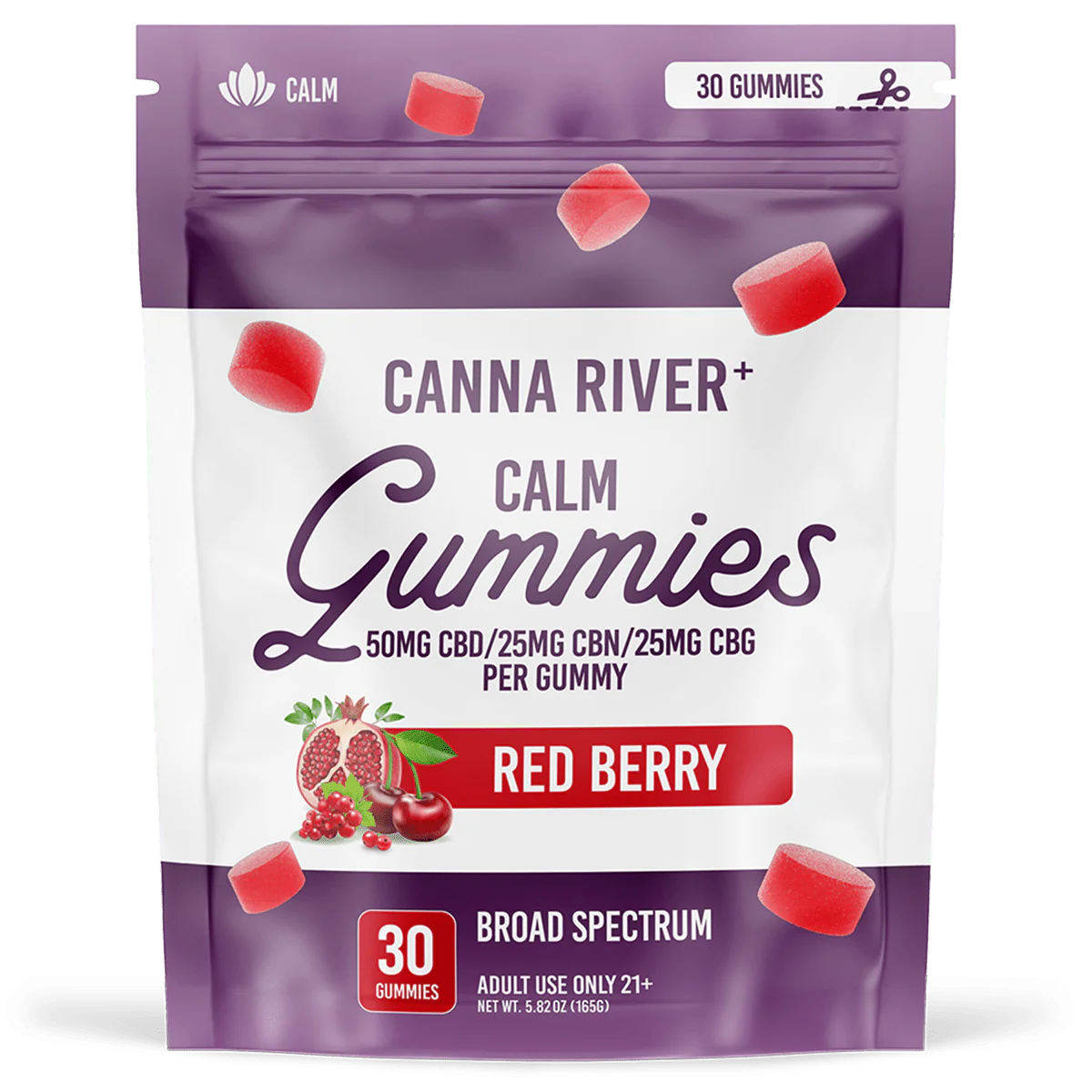
State laws and discrepancies
Federal and state laws regarding the legality of THC in the US often conflict and cause confusion. The following summarizes some of these discrepancies regarding state laws on THC:
California: Here, medical marijuana and recreational cannabis are legal, but this contradicts federal law.
Colorado: Medical marijuana and recreational cannabis are legal, but this contradicts federal law.
Idaho: THC is considered an illegal drug.
New York: Medical cannabis and recreational marijuana are both legal, contradicting federal law.
Texas: Marijuana is legal for medical use, but the state has yet to legalize recreational marijuana.
The conflict between state and federal cannabis laws creates a complex legal landscape. This leads to challenges for businesses in the marijuana industry, as each state has its own set of laws and regulations regarding the use and distribution of marijuana. The evolving legal status under federal and state laws can lead to conflicts and confusion.
Federal laws and regulations
The federal government has two main laws in the U.S. that control and regulate THC: the Controlled Substance Act and federal law enforcement policies put forward by Attorney General Jeff Sessions in 2017.
Under the 1970 Controlled Substance Act, cannabis is classified as a Schedule I substance – meaning it’s considered subject to restrictions for medical and recreational use, similar to drugs like heroin or LSD.
This means that under federal law, any form of possession or use of marijuana containing THC, including medically prescribed forms such as edibles or oils, is illegal in the United States unless otherwise specified by state legislation.
This classification can also have more widespread implications than mere criminal charges – individuals caught with marijuana may find themselves ineligible for certain benefits or job opportunities due to employment restrictions set forth under this act; they might even find themselves unable to purchase firearms due to gun ownership regulations related to drug classification systems established within the act itself.
Medical vs. Recreational Use of THC
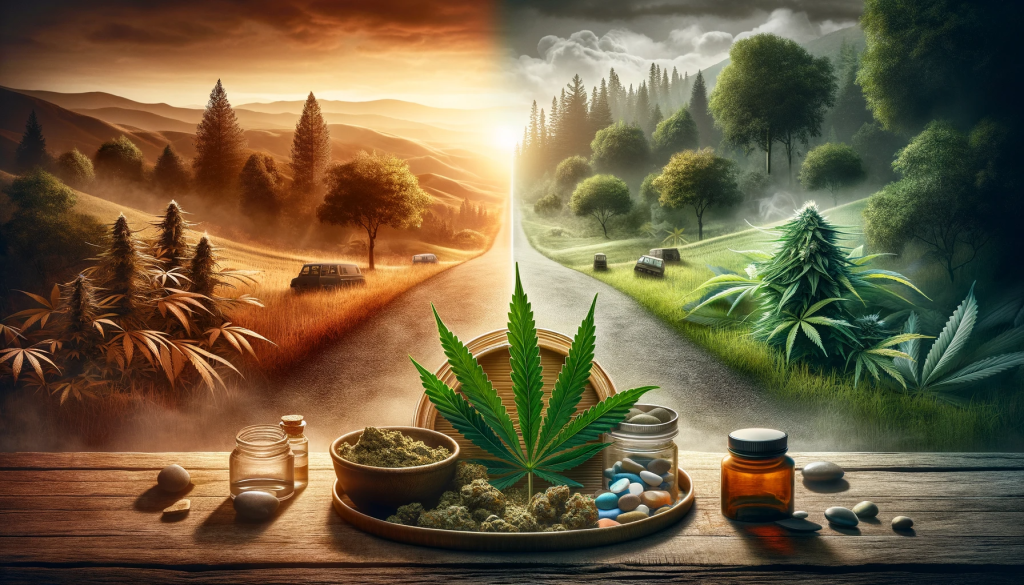
The legal status of THC for medical and recreational use varies significantly from state to state, with only a few states having fully legalized its use.
Current status across states
The legal status of THC, or tetrahydrocannabinol, the psychoactive component of cannabis, varies among states in the U.S. Despite federal regulations controlling its use and distribution, numerous states and territories have their laws regarding the medical and recreational use of THC.
- Alabama: Medical cannabis is legal if a physician decides other medication does not work. Recreational marijuana is illegal.
- Alaska: Marijuana legalization covers both recreational and medical use. The state does not allow medical dispensaries. However, consumers may own up to six plants for their own use.
- Arizona: Medical cannabis and recreational marijuana are legal here, and consumers may own up to six plants.
- Arkansas: Medical cannabis is legal here, but recreational marijuana is still illegal.
- California: Marijuana legalization in this state includes both medical marijuana and recreational marijuana possession. Adults can also own up to six plants.
- Colorado: Legal recreational marijuana can be found almost everywhere in the state. Those who need marijuana for medical use can have more than six cannabis plants for their own personal use.
- Connecticut: The cannabis laws here allow for recreational marijuana use and medical use as well.
- Delaware: There is not a bill legalizing recreational marijuana in Delaware, but the state legalized medical marijuana for a specific list of conditions.
- Florida: State marijuana laws legalized cannabis for medical use, but they have not yet legalized recreational marijuana.
- Georgia: Personal cultivation or simple possession is a criminal offence in this state, but some conditions may rely on cannabinoid drugs for medical use.
- Hawaii: The laws have not yet legalized recreational marijuana, but medical marijuana is still legal.
- Idaho: State law has not yet made adult use marijuana legal. Criminal penalties are still attached to possessing the substance.
- Illinois: This state recently made the effort to legalize recreational marijuana and marijuana for medical use.
- Indiana: This state did not legalize medical marijuana completely–only cannabis oil can be used for medical purposes. Simple marijuana possession outside of medical use is a criminal offense.
- Iowa: The state legalized cannabis oil for medical use only, not for recreational marijuana possession. Criminal penalties are still attached to recreational use.
- Kansas: There is no accepted medical or recreational use of marijuana in Kansas.
- Kentucky: The cannabis plant is still illegal here. Only CBD oil is available for those with medical conditions. Recreational use is illegal.
- Louisiana: The use of cannabis medically is legal here, but the effort to legalize marijuana for recreational use has not come to fruition yet.
- Maine: The medical use of cannabis and the recreational use of cannabis are both legal here.
- Maryland: It is legal to possess marijuana for medical and recreational purposes.
- Massachusetts: The state made an effort to legalize cannabis for all uses, both medical and recreational.
- Michigan: Marijuana is fully legal here, no matter what you use it for. Retail dispensaries can be found wherever you go.
- Minnesota: Marijuana is fully legal in this state for both recreational and medical purposes.
- Mississippi: Marijuana can be used as part of a medical program, and while it is still illegal to possess the substance recreationally, there are no cannabis related convictions.
- Missouri: Marijuana is fully legal in this state for both recreational and medical purposes.
- Montana: Marijuana is fully legal in this state for both recreational and medical purposes.
- Nebraska: There is no accepted medical or recreational use of marijuana
- Nevada: Marijuana is fully legal in this state for both recreational and medical purposes.
- New Hampshire: The laws have not yet legalized recreational marijuana, but medical marijuana is still legal.
- New Jersey: Marijuana is fully legal in this state for both recreational and medical purposes.
- New Mexico: Marijuana is fully legal in this state for both recreational and medical purposes.
- New York: Marijuana is fully legal in this state for both recreational and medical purposes.
- North Carolina: There is no accepted medical or recreational use of marijuana
- North Dakota: The laws have not yet legalized recreational marijuana, but medical marijuana is still legal.
- Ohio: Marijuana is fully legal in this state for both recreational and medical purposes.
- Oklahoma: The laws have not yet legalized recreational marijuana, but medical marijuana is still legal.
- Oregon: Marijuana is fully legal in this state for both recreational and medical purposes.
- Pennsylvania: The laws have not yet legalized recreational marijuana, but medical marijuana is still legal.
- Rhode Island: Marijuana is fully legal in this state for both recreational and medical purposes.
- South Carolina: There is no accepted medical or recreational use of marijuana
- South Dakota: The laws have not yet legalized recreational marijuana, but medical marijuana is still legal.
- Tennessee: The cannabis plant is still illegal here. Only CBD oil is available for those with medical conditions. Recreational use is illegal.
- Texas: The cannabis plant is still illegal here. Only CBD oil is available for those with medical conditions. Recreational use is illegal.
- Utah: The laws have not yet legalized recreational marijuana, but medical marijuana is still legal.
- Vermont: Marijuana is fully legal in this state for both recreational and medical purposes.
- Virginia: Marijuana is fully legal in this state for both recreational and medical purposes.
- Washington: Marijuana is fully legal in this state for both recreational and medical purposes.
- West Virginia: The laws have not yet legalized recreational marijuana, but medical marijuana is still legal.
- Wisconsin: The cannabis plant is still illegal here. Only CBD oil is available for those with medical conditions. Recreational use is illegal.
- Wyoming: There is no accepted medical or recreational use of marijuana
- District Of Columbia: Marijuana is fully legal here.
- Puerto Rico: The cannabis plant is still illegal here. Only CBD oil is available for those with medical conditions. Recreational use is illegal.
Medical benefits and regulations
THC, the active component of cannabis, is known to offer many potential medical benefits. Studies have revealed its ability to alleviate pain and inflammation for those with certain chronic conditions.
Thirty-eight states plus Washington D.C. have legalized the use of medical marijuana as a way to treat certain qualifying medical conditions such as cancer, epilepsy, HIV/AIDS, post-traumatic stress disorder (PTSD), glaucoma, and multiple sclerosis (MS).
States that allow for the use of medical cannabis typically require patients to obtain a valid authorization from a physician and register with their state’s health department to be eligible for treatment under their law.
Navigating Legality Of Marijuana
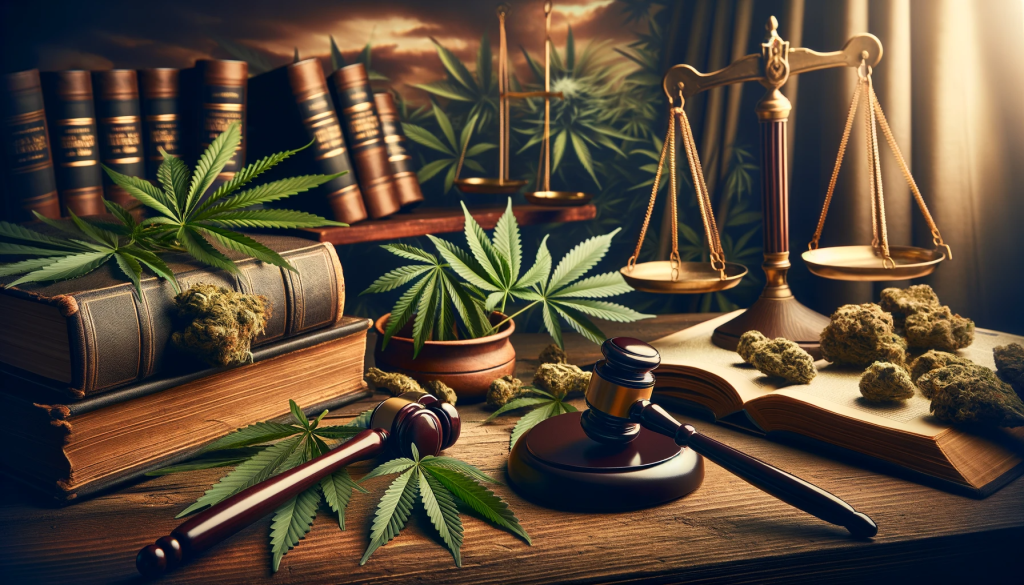
The legal status of THC in the United States is a complex and divisive issue. While eight states have legalized recreational use, many more allow medical marijuana. At the federal level, THC continues to be classified as an illegal Schedule I substance with no approved medical uses; still, a growing number of research studies may soon change that designation.
In this ongoing debate over legalization, each side makes compelling arguments based on public health concerns and current scientific evidence. Ultimately, education and responsible regulation are critical to making informed decisions about the safety, efficacy, and potential risks associated with cannabis use.
FAQs
1. What is THC?
THC is the active chemical component of marijuana that produces psychoactive effects and gets users “high.”
2. Is THC legal?
The legality of THC varies from state to state in the United States, so it’s important to check your local laws before using any products containing this compound.
3. Where can I legally buy products containing THC?
E-commerce stores or licensed medical and recreational dispensaries are typically the only sources for purchasing legally regulated products containing THC.
4. Is CBD legal in all states?
Unlike THC, CBD is considered legal federally and in most states across the U.S., but there may be restrictions depending on individual state laws regarding its form or usage.
5 . Do I need a prescription to purchase any product with a high concentration of THC?
No, you generally do not need a doctor’s prescription to purchase cannabis products with higher concentrations of (20% or more) than are allowed by law though there may be age restrictions according to individual state regulations.
